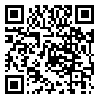Tue, Feb 17, 2026
[Archive]
Volume 11, Issue 4 (Autumn 2025)
JCCNC 2025, 11(4): 269-282 |
Back to browse issues page
Download citation:
BibTeX | RIS | EndNote | Medlars | ProCite | Reference Manager | RefWorks
Send citation to:



BibTeX | RIS | EndNote | Medlars | ProCite | Reference Manager | RefWorks
Send citation to:
Modabber M, Maleki M, Salahi E. Balancing Consent, Confidentiality, and Child Welfare: A Narrative Review of Ethical Dilemmas in Pediatric Nursing. JCCNC 2025; 11 (4) :269-282
URL: http://jccnc.iums.ac.ir/article-1-683-en.html
URL: http://jccnc.iums.ac.ir/article-1-683-en.html
1- Medical Ethics and History of Medicine Research Center, Tehran University of Medical Sciences, Tehran, Iran. , m.modabber313@gmail.com
2- Department of Medical Education, Tehran University of Medical Sciences, Tehran, Iran.
3- Department of Nursing, School of Nursing and Midwifery, Zanjan University of Medical Sciences, Zanjan, Iran.
2- Department of Medical Education, Tehran University of Medical Sciences, Tehran, Iran.
3- Department of Nursing, School of Nursing and Midwifery, Zanjan University of Medical Sciences, Zanjan, Iran.
Abstract: (1068 Views)
Background: Pediatric nursing faces a range of ethical challenges that are markedly different from those encountered in adult care, particularly concerning informed consent, confidentiality, and the welfare of children. The complexity of decision-making in pediatric settings necessitates a reevaluation of existing ethical frameworks to ensure they adequately address the unique needs of children while balancing parental authority. This study aims to explore ethical dilemmas in pediatric nursing by critically analyzing frameworks that balance informed consent, confidentiality, and child welfare, identifying prevalent challenges, and evaluating their application in real-world practice.
Methods: Conducted in 2024, this narrative review systematically examined quantitative and qualitative studies on ethical challenges in pediatric nursing via searches in MEDLINE, PubMed, Embase, Web of Science, CINAHL, Scholar Google, and Persian databases of Magiran and SID. Finally, 32 studies on pediatric nursing ethics were included. The articles were narratively synthesized, and their quality was assessed using the SANRA (scale for the assessment of narrative review articles) checklist.
Results: The narrative synthesis identified key ethical dilemmas in pediatric nursing, including decision-making tensions (e.g. informed consent conflicts), end-of-life care challenges, confidentiality breaches, communication barriers, and ethical numbness resulting from workload pressures. Pediatric nurses often face the challenge of balancing their advocacy for a child’s best interests with respect for parental preferences, particularly in situations that require informed consent. Furthermore, the literature emphasizes the importance of effective communication and collaboration among healthcare teams in navigating these complex ethical landscapes.
Conclusion: The study highlights the urgent need for tailored ethical guidelines in pediatric nursing that prioritize child welfare while respecting parental authority and address unresolved challenges, such as assessing a child’s capacity for assent. Continuous education and interdisciplinary collaboration are essential for enhancing the ethical decision-making capabilities of pediatric nurses. By fostering a culture of ethical awareness, the nursing profession can significantly improve the quality of care provided to children, ensuring their voices are heard and respected within the healthcare system. This commitment is vital for creating a more equitable and compassionate healthcare environment for vulnerable populations.
Methods: Conducted in 2024, this narrative review systematically examined quantitative and qualitative studies on ethical challenges in pediatric nursing via searches in MEDLINE, PubMed, Embase, Web of Science, CINAHL, Scholar Google, and Persian databases of Magiran and SID. Finally, 32 studies on pediatric nursing ethics were included. The articles were narratively synthesized, and their quality was assessed using the SANRA (scale for the assessment of narrative review articles) checklist.
Results: The narrative synthesis identified key ethical dilemmas in pediatric nursing, including decision-making tensions (e.g. informed consent conflicts), end-of-life care challenges, confidentiality breaches, communication barriers, and ethical numbness resulting from workload pressures. Pediatric nurses often face the challenge of balancing their advocacy for a child’s best interests with respect for parental preferences, particularly in situations that require informed consent. Furthermore, the literature emphasizes the importance of effective communication and collaboration among healthcare teams in navigating these complex ethical landscapes.
Conclusion: The study highlights the urgent need for tailored ethical guidelines in pediatric nursing that prioritize child welfare while respecting parental authority and address unresolved challenges, such as assessing a child’s capacity for assent. Continuous education and interdisciplinary collaboration are essential for enhancing the ethical decision-making capabilities of pediatric nurses. By fostering a culture of ethical awareness, the nursing profession can significantly improve the quality of care provided to children, ensuring their voices are heard and respected within the healthcare system. This commitment is vital for creating a more equitable and compassionate healthcare environment for vulnerable populations.
Type of Study: Review Article |
Subject:
Special
Received: 2024/10/18 | Accepted: 2025/04/20 | Published: 2025/11/1
Received: 2024/10/18 | Accepted: 2025/04/20 | Published: 2025/11/1
Send email to the article author
| Rights and permissions | |
 |
This work is licensed under a Creative Commons Attribution-NonCommercial 4.0 International License. |






